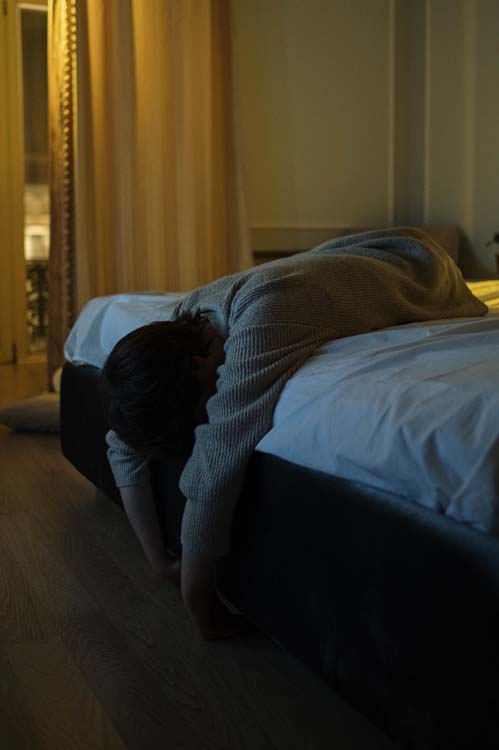
Dealing with a breast cancer diagnosis and the subsequent treatment can be an incredibly challenging journey, both physically and emotionally. Among the common hurdles faced by patients are fatigue and insomnia, which can persist even after treatment concludes, significantly affecting one’s daily life and overall well-being.
Understanding Fatigue during Breast Cancer Treatment
Fatigue is an omnipresent companion for those undergoing breast cancer treatment. This persistent exhaustion can linger long after treatment ceases, disrupting daily routines and diminishing the quality of life. The emotional toll of a cancer diagnosis can also contribute to these feelings of weariness.
To combat fatigue, it is vital to incorporate regular physical activity into your daily routine. Even simple exercises like walking or cycling can go a long way in reducing fatigue levels. Aerobic exercises, in particular, have been proven effective, though activities such as yoga can provide relief as well. Consider finding an exercise partner to provide support and motivation.
In addition to exercise, prioritizing sleep is crucial. Establishing a consistent sleep schedule, going to bed and waking up at the same time each day, can significantly enhance sleep quality. Avoiding daytime naps, engaging in exercise earlier in the day, and creating a peaceful, dark sleep environment can also contribute to improved sleep hygiene.
Other techniques that may help reduce fatigue include acupuncture, cognitive-behavioral therapy (CBT) combined with hypnosis, and mindfulness meditation. These approaches aim to address the psychological and emotional aspects of fatigue, equipping individuals with effective coping mechanisms.
Understanding Insomnia during Breast Cancer Treatment
Insomnia, characterized by the difficulty in falling asleep and staying asleep, is another common issue faced by individuals undergoing breast cancer treatment. The combination of treatment side effects and the emotional impact of a cancer diagnosis can disrupt sleep patterns, making it challenging to attain adequate rest.
While medications are often employed to treat insomnia in non-cancer patients, their effectiveness in addressing insomnia related to breast cancer treatment is limited. However, several strategies can help improve sleep quality.
Reducing stress through meditation or other relaxation techniques can have a positive impact on sleep. Additionally, establishing a bedtime routine that involves turning off electronic devices such as TVs, computers, phones, and tablets an hour before bed can signal to the body that it’s time to rest.
Acupuncture, cognitive-behavioral therapy, mindfulness meditation, tai chi, and yoga have also shown promise in improving sleep for cancer survivors. These activities can be performed remotely or in the comfort of one’s home, making them accessible and convenient options. These techniques aim to address the psychological and emotional aspects of fatigue, providing individuals with effective coping mechanisms.
Long-Term Impact of Fatigue and Insomnia on Breast Cancer Survivors
For some breast cancer survivors, fatigue and insomnia can persist long after treatment ends, significantly affecting their ability to function in various aspects of life, including academic and professional performance.
Understanding the potential causes of sleep problems in survivors is crucial. While the side effects of treatment may contribute to sleep disturbances, lifestyle factors such as excessive screen time, lack of exercise, and poor sleep habits can also play a role. Identifying and addressing these factors can help survivors improve their sleep quality and overall well-being.
The Link Between Sleep and Cancer Risk
Beyond the immediate impact of fatigue and insomnia on breast cancer treatment, research has shown that long-term sleep disruptions may increase the risk of certain cancers. Disruptions in the body’s biological clock, which regulates sleep and various bodily functions, can raise the likelihood of developing breast, colon, ovarian, and prostate cancers.
1. Circadian Rhythm Disruption: Our bodies operate on a natural 24-hour cycle known as the circadian rhythm, influencing crucial biological functions, including the sleep-wake cycle. Disrupting this rhythm, such as through irregular or insufficient sleep, can disturb hormone production and cellular processes, potentially impacting cancer development.
2. Immune System Function: Adequate sleep plays a crucial role in bolstering our immune system, enabling it to combat harmful cells and pathogens effectively. Sleep deprivation can weaken immune function, potentially allowing cancer cells to escape the body’s defense mechanisms.
3. Melatonin Production: Melatonin, a hormone regulated by our circadian rhythm, plays a role in protecting against cell damage and mutation. Reduced melatonin levels due to poor sleep quality or nighttime light exposure may impair the body’s ability to defend against cancer.
To mitigate the potential risks associated with shift work, it is essential to prioritize regular cancer screenings, such as mammograms, colorectal cancer screenings, and prostate checks recommended by healthcare providers.
Managing Sleep-Disordered Breathing in Cancer Survivors
Another sleep-related issue that affects cancer survivors, including those who have had childhood cancer, is sleep-disordered breathing. This condition can manifest as loud snores or pauses in breathing during sleep and can persist into adulthood.
A recent study conducted at the Johns Hopkins Kimmel Cancer Center found that sleep-disordered breathing was nearly five times more prevalent in childhood cancer survivors compared to healthy children. As more individuals live for extended periods beyond cancer, addressing sleep-disordered breathing becomes increasingly important for long-term health.
Improving sleep quality for cancer survivors is a crucial aspect of their overall well-being. By addressing fatigue, insomnia, and sleep-disordered breathing, healthcare providers can help patients navigate the challenges of cancer treatment and enhance their quality of life.
Remember, if you are experiencing excessive fatigue or struggling with sleep during breast cancer or any cancer treatment, it is essential to consult with your healthcare provider. They can provide guidance and support tailored to your specific needs, ensuring you receive the necessary care to manage these challenges effectively.
-A message from
Grazia Bizzotto Co-Owner of Sleep On Green.
Learn more about our company and products at SleepOnGreen.com.
Call us today at 305-395-3500 or fill out the contact form for any questions.
